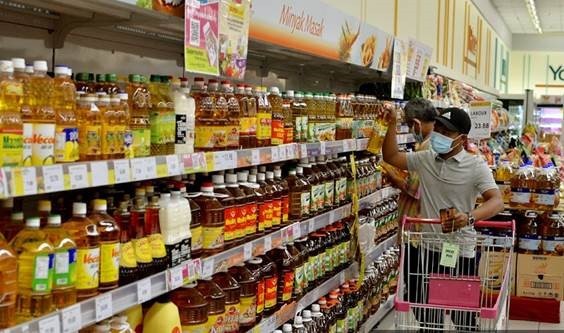
PETALING JAYA: There is a need to strike a balance between subsidy rationalisation and cash handouts to ensure that the poor are able to cope with the rise in the inflation rate.
According to two economists FMT Business spoke to, removing subsidies will raise prices, leading to an inflationary impact.
However, additional cash in the pocket may not be sufficient to make a meaningful difference to those in the low-income group.
They were commenting on the announcement by Prime Minister Ismail Sabri Yaakob on Wednesday that the subsidy for bottled cooking oil would be removed with immediate effect.
In place of the subsidy, the government would raise the cash handout by RM100 for each household and RM50 for each individual who qualify under the Bantuan Keluarga Malaysia (BKM) scheme.
This came on the heels of yet another announcement that the ceiling price for chicken and chicken eggs would be abolished with effect from July 11.
Malaysia University of Science and Technology’s Geoffrey Williams said it is important to have subsidies and price controls to manage inflation.
“Otherwise Malaysia’s inflation would be very similar to the levels seen in other parts of the world,” he said.
“My real concern is that if you remove the subsidies and price controls too quickly, you will see prices rise and if this is across the board you’ll see a spike in inflation. The response to higher inflation is higher interest rates,” he added.
The latest data from Bank Negara Malaysia revealed that the country’s headline inflation rose to 2.3% in April from 2.2% in March, while core inflation was marginally higher at 2.1% from 2.0% for the previous month.
Given Malaysia’s price controls and subsidies, the number is more subdued compared to the 40-year high seen in the UK and US of 9.1% and 8.6% for May 2022, respectively.
In the previous monetary policy committee meeting in May, the central bank raised the overnight policy rate (OPR) by 25 basis points (bps) on the back of firmer economic footing supported by strengthening domestic demand and the labour market as well as sustained export growth amid easing restrictions and the reopening of borders.
In June, the US raised interest rates by 75bps – the highest since 1994, to a range of 1.5% to 1.75%, on the back of surging inflation. Moving forward, economists polled by Reuters expect another 75bps hike in July.
Williams agrees that some subsidies ought to be removed. For instance, he said, the impact from the removal of subsidy for bottled cooking oil would be minimal.
On the other hand, he expressed concern over a possible hike in electricity tariffs given that it would affect prices across the board.
“We estimate that when the tariff rose early this year, it added more than 0.5% to the inflation rate. This will hit low-income groups and large families hardest,” he said.
“What that means is we shouldn’t remove subsidies across the board. Instead we have to be selective of what we’re removing and when we are removing it,” he added.
Inter-Pacific Securities head of research Victor Wan said the central bank faced a catch-22 situation given the US decision to accelerate rate hikes to tame inflation.
In tandem with the peel back in subsidy by the government, he projected the OPR will end the year at 2.5%, an upward revision from a 2.25% estimated earlier this year.
“However, this is assuming that there are no changes to the current fuel subsidy regime. Should there be any changes the inflationary pressures will be much greater,” Wan added.
Source: https://www.freemalaysiatoday.com/category/business/local-business/2022/06/23/economists-warn-against-subsidy-handout-tightrope-act/

